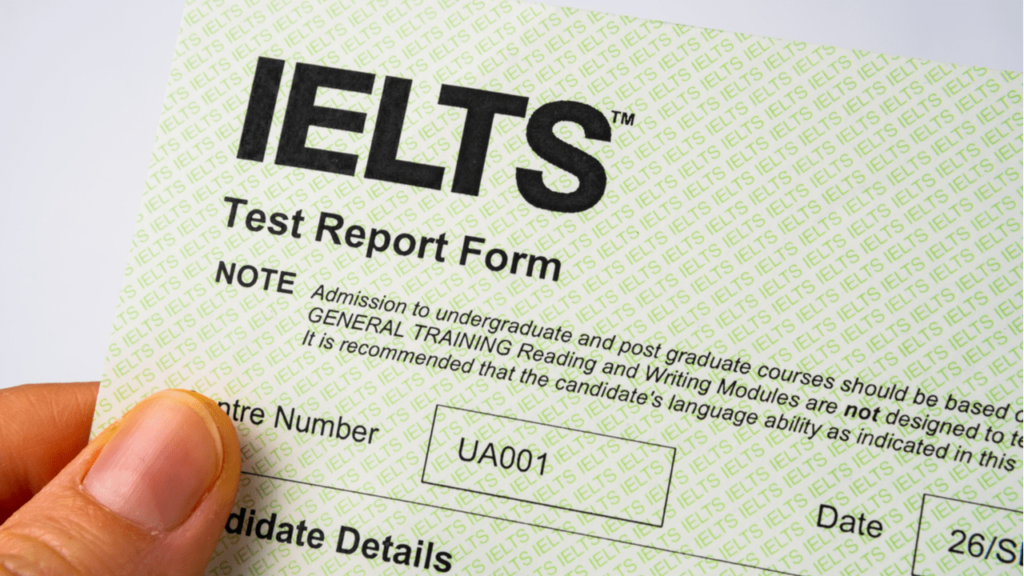IELTS test is an English language proficiency test that assesses the students’ language skills in four different sections: Reading, listening, speaking and writing. The test scores are then released in terms of band scores for each module mentioned above.
The highest overall band score possible in the IELTS exam (both IELTS Academic and IELTS General) is 9. If any individual gets their IELTS Band 9 in any of the modules out of the four, then that person is considered an expert in that section.
Similarly, an overall high score of IELTS band 9 means that the person is fully proficient in the English language and will face no difficulties in moving to a country where people majorly speak the English language.
However, as good as the prospect of attaining a band score of 9 sounds, the IELTS preparation required to get this score is also demanding. Over the due course of preparation for the final IELTS exam, the student will have to put in some time to perfect their English vocabulary, grammar, and pronunciation. So, how to get started with your IELTS preparation if you aim to score a perfect band 9 in all sections of the exam?
Below are some of the best tips that many IELTS mentors and top exam scorers have suggested time and time again for scoring a high score:

Parameters to Get IELTS Band 9 in Speaking
Before getting to tips that can help you get a band 9 in IELTS speaking, it is important to understand what is being assessed in the speaking module by the IELTS examiner.
There are four basic parameters that are judged for this section:
- Lexical resource (the variety of vocabulary used)
- Pronunciation
- Fluency and coherence (how well you can answer the question asked)
- Grammatical range
Keeping these parameters in mind, here are some tips to help you achieve a high score:
- Maintain eye contact with the examiner and be confident while answering.
- Practice in front of a mirror or with an IELTS coaching mentor before appearing for the final exam.
- If you are asked to wear a mask on the exam day, practice with a mask on first during your IELTS preparation.
- Wherever required, take a pause and think of the answer before speaking.
- Try paraphrasing the question whenever you answer.
- Be polite and humble; occasionally, use voice modulation not to keep the answers monotonous.
- Try to use a wide range of vocabulary, and don’t shy away from using some complex words occasionally.
- Lastly, think of this section as more of a conversation and maintain your cool. It will help you better understand the questions and frame better answers.
Also Read: How to Score 9 Band in IELTS Speaking
Tips to Get IELTS Band 9 in Reading
The reading section of the IELTS exam tests the following skills: reading for main ideas, reading for gist, skimming, attention to details while reading, and recognising the writer’s attitude, purpose, and opinion.
Here are some tips to ace the reading section:
- Read the questions first and then move on to reading the paragraph.
- Attempt to read multiple questions at once and not just take the approach of reading one question and finding its answer.
- As an unsaid rule, take about 18-20 mins on the easier paragraphs and more time on the tougher ones. Time management and organisation are key to scoring a high band score in reading tasks.
- Prepare books, journals, magazines, and newspapers for academic reading. Whereas preparing from notices, handbooks, advertisements, and newspapers for general IELTS.
Also Read: How To Score 8+ Band In IELTS Speaking

Excel in IELTS with India’s Top Online Coaching
Leap has helped more than 1 Lakh students achieve 7+ IELTS band.
Ways to Score IELTS Band 9 in Listening Section
The listening section is probably the relatively easiest section to score marks in. The only tip for getting a very high score in the IELTS listening exam is to keep on practising with as many IELTS audio tests as possible. These tests will help you become familiar with the kind of questions you can expect in the exam.
Before the exam date, make sure that you have practised every type of question possible in the listening section. Also, ensure that you are filling in your answers in the answer sheet side by side and are not waiting for the audio to end to then start putting in the answers.

Excel in IELTS with India’s Top Online Coaching
Leap has helped more than 1 Lakh students achieve 7+ IELTS band.
How to Get Band 9 in IELTS Writing Task
The IELTS writing task is often considered the toughest nut to crack in the IELTS exam, and if not attempted well, it can drop your overall band score. Therefore, students must ensure that they put in more effort for this particular section.
Some tips that can help you catapult your IELTS writing task score are:
- Dedicate 20 minutes of your time to task 1 and about 30 minutes to the IELTS essay, which is task 2. You should use your remaining time to proofread and ensure that you haven’t made any inaccuracies, spelling errors, letter casing errors, or any other punctuation or grammatical errors.
- Mention any familiar situations in the examples for writing task 2 to build coherence and refine the quality of your essay.
- Read through sample answers of IELTS band 9 on common themes like fossil fuels, global warming, nuclear energy, etc., that have been taken up in writing task 2 again and again.

Conclusively, you are now in a good space to score an IELTS band 9 in each section after knowing about all the tips and tricks you need to use in the IELTS exam. However, simply knowing these tips doesn’t guarantee a high band score. To get a good score, you have to put in the effort and prepare well for the exam through sample tests, preparation modules, and consistent practice.
If you are looking for professional coaching for IELTS, then our IELTS Prep app is the perfect solution for you. You can access specially crafted lessons by experts accredited by IDP, the British Council, and Cambridge. About 1M + students have trusted us with their IELTS prep journey. Join us, download our IELTS prep app and get access to the best resources!
Related Articles:
- Tips to Get IELTS Score Band above 6
- IELTS Writing Task 2 Vocabulary For Band Score 8, 9
- Know more about Different IELTS Band Score
Frequently Asked Questions
-
Is it possible to get a IELTS band 9 in the real exam?
Yes, getting an IELTS band score of 9 in the actual exam is very much possible. This is possible if you have met the expectations of the IELTS examiner and showcased the qualities of a competent user of the English language.
-
Which website should I use for practice tests and training materials on IELTS band 9?
You can use Leap Scholar’s preparation modules and courses to gain momentum in your preparation and ensure a good band score in every section.
-
Is it impossible to prepare at home for IELTS band 8 or 9?
Yes, but to some extent. With the availability of endless resources online and expert mentors who know the field well, it is usually advised to get guidance from them to attain a good IELTS score of band 8 or 9.
-
Can the audio in the IELTS listening test be repeated?
No, the listening exam cannot be stopped or resumed. You must respond to the questions as you listen to the IELTS recordings.
-
What English accent is used for the IELTS listening test?
Various accents, including British, American, Australian, Canadian, etc., are used in the IELTS hearing test.
-
Can I use capital letters to compose my answers in the IELTS listening section?
Yes, the IELTS listening test allows both lowercase and capital letters.
-
How many IELTS test centres are there in India?
India is home to numerous IELTS exam centres. You can take the exam in 78 venues in India. You should choose your venue carefully to avoid exhausting travel on exam day. Select a location with a short commute so you can arrive at the exam site feeling rested. With so many sites, it would be simple to locate a test centre close to your home. Remember to reserve the test location in advance based on your preferred time.















Have Questions? Get Guidance to reach your Dream University
Connect with India's finest counsellors and biggest study abroad community.
Get Guidance